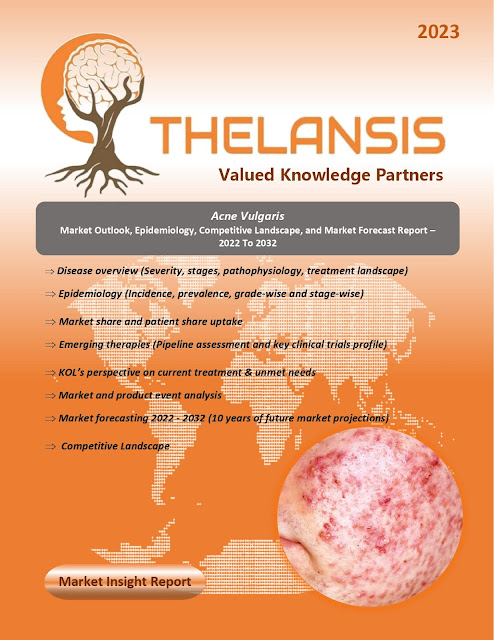Moderate to Severe Diabetic Foot Infection (DFI) – Market Outlook, Epidemiology, Competitive Landscape, and Market Forecast Report – 2023 To 2033
Diabetic foot infection (DFI) is the most frequent reason for hospitalization and the primary cause of nontraumatic lower extremity amputation in individuals with diabetes mellitus. DFI is an infection affecting the soft tissues or bones below the malleoli. Clinical diagnosis of diabetic foot infections relies on identifying at least two typical signs of inflammation or purulence. These infections are categorized as mild, moderate, or severe. Typically, moderate infections (grade 3) extend more than 2 cm around the lesion, involve deep tissue abscesses, gangrene, or affect muscles, tendons, joints, or bones. In contrast, severe infections (grade 4) manifest as systemic infections with vital sign alterations like fever and hypotension. Peripheral artery disease contributes to diabetic foot infections, impairing blood flow and hindering wound healing in individuals with diabetes who may not initially perceive injuries. Consequently, moderate to severe foot infections become a heightened risk for this group. Most diabetic foot infections are polymicrobial, with aerobic gram-positive cocci, predominantly Staphylococcus species, being the most common pathogens. Diabetic foot infection can lead to the serious complication of osteomyelitis, necessitating surgical intervention. Diagnosis relies on clinical evidence, including purulent discharge from ulcers and classic signs of inflammation such as erythema, pain, tenderness, warmth, or induration. Additional indicators include unpleasant odor, necrosis, and wound healing failure despite optimal care. Prompt detection and proactive treatment of infections are crucial for managing diabetic foot complications. Moderate and severe diabetic foot infections may require intensive treatment and rehabilitation. The 5-year survival rate for individuals undergoing amputation due to diabetic foot ulcers (DFU) is believed to be less than 50%. Approximately 20% of diabetic foot patients with moderate or severe infections undergo partial foot amputation. Therefore, early detection and aggressive treatment are vital for individuals with diabetic foot problems, necessitating ongoing management, especially for moderate and severe infections.
- Diabetic foot ulcers (DFU) represent a significant and prevalent complication of diabetes, with around 2 million people developing DFUs annually in the United States. The annual incidence of foot ulcers in the diabetic population ranges from 1.9% to 4.0%.
Thelansis’s “Moderate to Severe Diabetic Foot Infection (DFI) Market Outlook, Epidemiology, Competitive Landscape, and Market Forecast Report – 2023 To 2033" covers disease overview, epidemiology, drug utilization, prescription share analysis, competitive landscape, clinical practice, regulatory landscape, patient share, market uptake, market forecast, and key market insights under the potential Moderate to Severe Diabetic Foot Infection (DFI) treatment modalities options for eight major markets (USA, Germany, France, Italy, Spain, UK, Japan, and China).
KOLs insights of Moderate to Severe Diabetic Foot Infection (DFI) across 8 MM market from the centre of Excellence/ Public/ Private hospitals participated in the study. Insights around current treatment landscape, epidemiology, clinical characteristics, future treatment paradigm, and Unmet needs.
Moderate to Severe Diabetic Foot Infection (DFI) Market Forecast Patient Based Forecast Model (MS. Excel Based Automated Dashboard), which Data Inputs with sourcing, Market Event, and Product Event, Country specific Forecast Model, Market uptake and patient share uptake, Attribute Analysis, Analog Analysis, Disease burden, and pricing scenario, Summary, and Insights.
Thelansis Competitive Intelligence (CI) practice has been established based on a deep understanding of the pharma/biotech business environment to provide an optimized support system to all levels of the decision-making process. It enables business leaders in forward-thinking and proactive decision-making. Thelansis supports scientific and commercial teams in seamless CI support by creating an AI/ ML-based technology-driven platform that manages the data flow from primary and secondary sources.
_page-0001.jpg)



Comments
Post a Comment